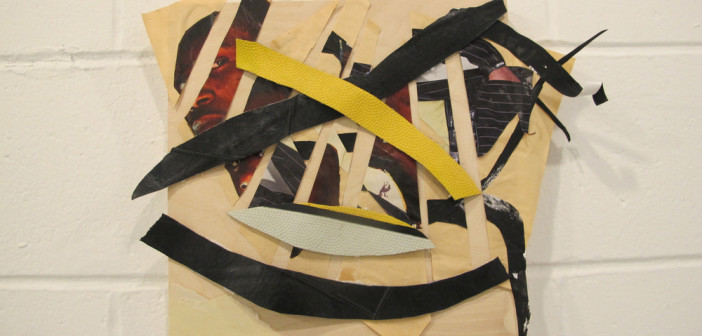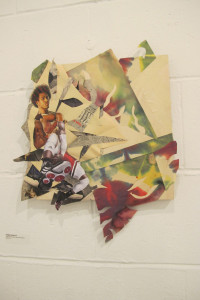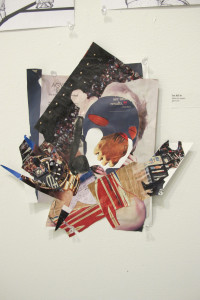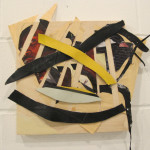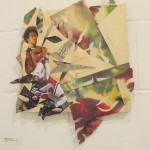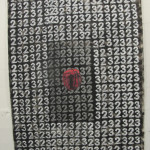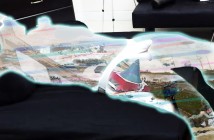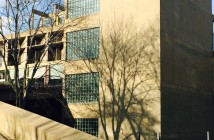"Boston Common" highlights the people and organizations that shape Boston and New England's cultural sector by going straight to the source to find out who they are, what they are doing, and how and why they do it. We hope that the interview series will champion some of the exemplary work being done, shed light on neglected issues facing our arts scene and community, build connections among individuals and organizations, and expand the networks on which we rely. In our newest installment, we talk to artist Marlon Forrester.
Tell us about your current work. What are you focusing on now, and how does it relate to previous work?
My new work explores through painting and collage the broken and shattered dreams of fallen heroes and dying stars who hope to find their way through the concert jungle of urban industrialized Neo-Expressionist decay. Geometric lines become prison cells or crossways that lead to new opportunities, education, and financial freedom, while the other perspectival lines fused with images lead them to the cult of commodity and spectacle, transfixed forever by the game of basketball and the rites and rituals within. Sneakers become heads and arms become legs, numbers become mimetic symbols for transformation within a secret lexicon most people cannot interpret.
What do you do when you're not making art?
When I'm not making art, I'm teaching, reading about art and designing art based curriculum for students. I frequently spend time meditating in my studio for a hour, day, or even a week before beginning a new work.
What are your plans for the coming year?
Pray for enlightenment and spiritual up-liftment through my artwork and the financial means needed to share my work with future histories. We are all part of the same energy collective and I hope to gain more connections with like-minded individuals that want to support and assist me in sharing my work with the world.
What are some challenges you face, and how are you working to address them?
I never see challenges in my life, I only see opportunities for growth and that mindset has allowed me to set goals in my life that are achievable.
What advice do you have for someone looking to follow in your footsteps?
I would advise anyone attempting to follow in my footsteps to create their own. I believe the most valuable lessons in life come from searching for your own unique and authentic voice.
What do you wish you knew early in your career?
I wish I knew that culture and art are both intrinsically intertwined and immensely hard to separate. I wish I knew that being an artist required a strong sense of humility and faith, but also an awareness to spiritual, societal and political shifts that take place locally, nationally, and globally. I think the same can be said of finding new ways to reenergize your art practice and process through research, whether it be going to art shows, exhibitions, and conferences that can influence your work.
Name one challenge that the Boston cultural sector faces, and how you’d suggest fixing it.
Boston is a beautiful city, in which culture permeates the air from the South End to Dorchester, but yet it remains sometimes trapped within distinct zones and communities, yearning to be set free. I believe bridging the gap between these communities by embracing diversity through large scale public art commissions or art based events is a great way to fix this problem.
Tell us about one cultural event/exhibition or
organization/individual(other than you) that has exceeded your
expectations recently. What work are they doing, and why is it important?
I am currently a resident artist at African-American Masters Artist Residency Program (AAMARP) adjunct to the Department of African-American Studies in association with Northeastern University. AAMARP has been in existence since the early '70s and gives studio space to thirteen artists who exhibit locally, nationally and internationally throughout the African diaspora and abroad. AAMARP is located in a multicultural visual arts complex that supports theatre, dance, and exhibitions that functions as a catalyst for change, not just in Boston but around the world.
- Marlon Forrester
- Marlon Forrester
- Marlon Forrester
- Marlon Forrester

